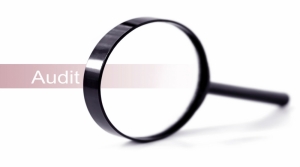عرض العناصر حسب علامة : جودة المراجعة
رسالة دكتوراه: قياس تأثير مدخل المراجعة المشتركة على العلاقة بين جودة الأرباح وتكلفة رأس المال
رسالة ماجستير: الدفع غير المباشر لأتعاب المراجعة كمدخل مقترح لدعم استقلال المراجع الخارجي
يتمثل الهدف الرئيسي لهذا البحث في اقتراح آلية عملية جديدة لدفع أتعاب المراجعة الخارجية يکون لها صلاحية التطبيق في جمهورية مصر العربية بغرض دعم استقلال المراجعين الخارجيين.
رسالة ماجستير: أثر الخصائص التشغيلية للمنشأة وخصائص عملية المراجعة على الجهد المبذول في عملية المراجعة وإنعكاسه على قيمة المنشأة في بيئة الأعمال المصرية
الهدف: تحديد أثر الخصائص التشغيلية وخصائص عملية المراجعة على الجهد المبذول فى عملية المراجعة وانعکاسه على قيمة المنشأة فى بيئة الأعمال المصرية.
معلومات إضافية
- البلد مصر
رسالة ماجستير: دور جودة المراجعة في تقليل عدم تماثل المعلومات وإنعكاسها على مخاطر إنهيار أسعار الأسهم
يتمثل هدف الدراسة في قياس أثر تحسين جودة مراجعة الحسابات على تقليل مستويات عدم تماثل المعلومات بين الأطراف ذوي الصلة بغرض الحد من مخاطر إنهيار أسعار الأسهم.
معلومات إضافية
- البلد مصر
رسالة ماجستير: دور نمط الملكية في تفسير علاقة درجة تركز سوق خدمات المراجعة بجودة التقارير المالية بالتطبيق على قطاع البنوك المصرية
تهدف الدراسة إلى الوصول لدليل تطبيقي حول دور نمط ملکية البنوک في تفسير علاقة ترکز خدمات سوق المراجعة في مکاتب المراجعة الکبرى بمدى تحقق جودة التقارير المالية المنشورة للبنوک المصرية، وذلک فضلاً عن محاولة الوصول إلى نموذج کمي يفسر مشکلة الدراسة.
معلومات إضافية
- البلد مصر
رسالة ماجستير: قياس أثر جودة المراجعة على دقة تنبؤات المحللين الماليين بأسعار الأسهم في ظل التحول الرقمي للشركات المقيدة بالبورصة المصرية
هدف البحث إلى قياس أثر جودة المراجعة ( معبراً عنها بنوع المراجعة، حجم مکتب المراجعة، وتحفظ تقرير المراجع عند عدم تحقق جودة الأرباح) على دقة تنبؤات المحللين الماليين بأسعار الأسهم فى ظل التحول الرقمى للشرکات المقيدة بالبورصة المصرية
معلومات إضافية
- البلد مصر
رسالة ماجستير: تطوير الأداء المهني للمراجع الخارجي وأثره على جودة المراجعة البيئية
استهدفت الدراسة التعرف على أهمية تطبيق معايير التعليم المحاسبي الدولية، ودورها في تطوير جودة الأداء المهني للمراجع الخارجي لمراجعة مدى التزام الشركات بالبعد البيئي، وأثر ذلك على تحسين جودة المراجعة البيئية
معلومات إضافية
- البلد السعودية
رسالة ماجستير: أثر تطبيق مدخل المراجعة المشتركة على توقيت إصدار تقرير المراجعة في بيئة الممارسة المهنية المصرية
الهدف: يتمثل الهدف الرئيسي للبحث في بيان أثر تطبيق مدخل المراجعة المشتركة على توقيت إصدار تقرير المراجعة في بيئة الممارسة المهنية في مصر.
معلومات إضافية
- البلد مصر
رسالة ماجستير: التأکيد المشترک کأحد آليات الرقابة الداخلية ودور أصحاب المصلحة في المراجعة الداخلية في تفعيل تطبيقه (دراسة ميدانية)
أربعة مفاهيم أساسية في جودة المراجعة
معلومات إضافية
-
المحتوى بالإنجليزية
4 key concepts in audit quality
April 5, 2021 3:15 PM
Facebook
Twitter
LinkedIn
Email
Show more sharing options
Quality is the “North Star” of PricewaterhouseCooper’s audit service, according to vice chair and assurance leader Wes Bricker, but it’s supported by four key concepts that advance the firm’s audit strategy.
1. Simplification
“Simplification is about taking unnecessary complexity out,” Bricker explained. “We have to actively think about how we simplify our end-to-end audit process. We’ve been very focused on that, and that impacts our people experience and that impacts our client experience; it takes the unnecessary complexity out so we can focus on the things that matter.”
2. Standardization
“That’s about taking a look at where we can work at scale on a centralized basis,” Bricker said, though he was quick to point out that, unlike many efforts at standardization, this is more about making sure all work is done at the same high level, and not about saving money. “It’s not a cost decision; it’s about consistency of execution, which contributes to quality.”
3. Specialization
“Specialization is about bringing in the right knowledge at the right points so that our people are spending time on areas that require the greatest judgment,” he explained. “Specialization helps us be relevant, because we’re working on areas of risk that have consequence to users of our service.”
4. Automation
“Automation is the last piece. Automation is how technology can harness points in the audit process to achieve synergy between our people and the machines that they use, so that the sum is greater than those individual parts,” Bricker said. “That takes a workforce that is upskilled that understands technology and its role; it also takes investments in technology so they have the tools, and then putting together people and technology to create something much greater than either of those individually, and helps us drive the process, deliver quality, increase the value, and create a better experience.”
For more, see our feature, “A new eye on audit quality.”










